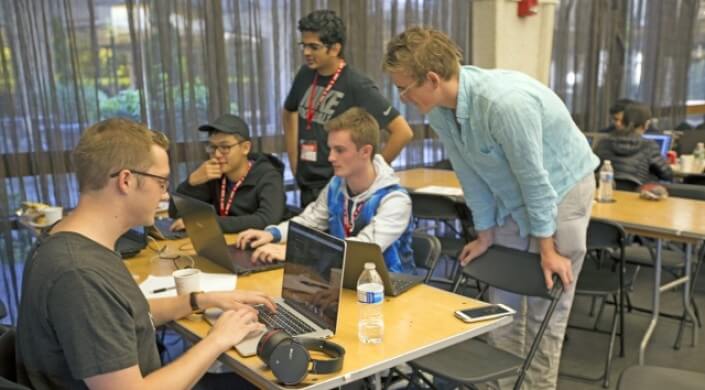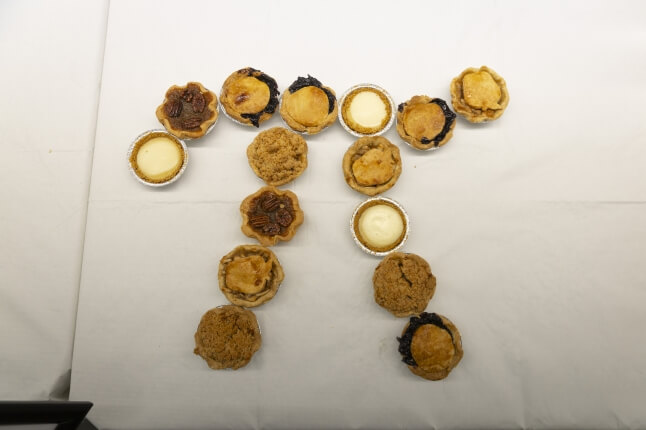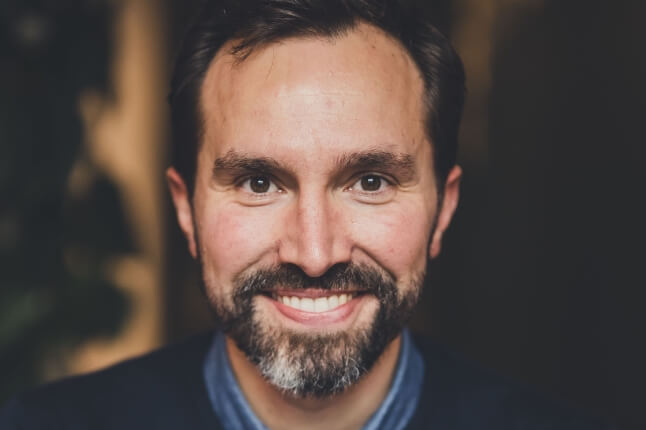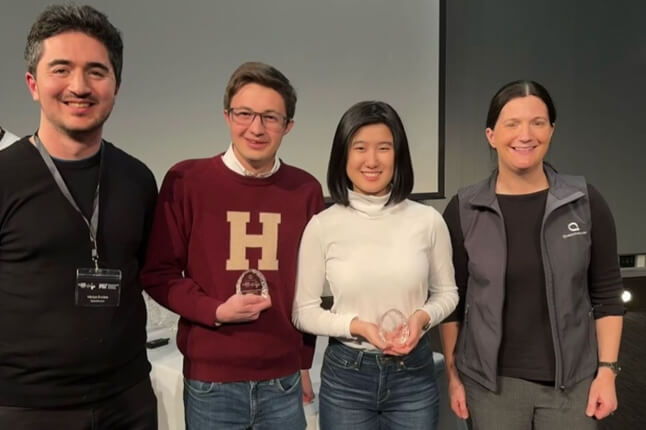News
Jake Seaton, A.B. ’19, a computer science concentrator, (front left), is coding to save lost pets. Working with event attendees he met this weekend, they are creating a database that allows people to report lost animals and others to report locations of found ones, as well as match photos of missing pets. (Photo by Alana Davitt/SEAS Communications.)
“It’s the hacking spirit. You see something cool and want to play with it. Here you can,” explained Audrey Effenberger, A.B. ’19, a neurobiology concentrator and design team member for HackHarvard.
The 36-hour computer hacking event, hosted by Harvard from Oct. 20-22, brought together 30 event organizers, nearly 700 college students from around the globe, and many big-name sponsors including Google, Microsoft, and Facebook. The theme for this year’s HackHarvard, now in its third year, was “Breaking new ground: crossing new boundaries, discovering new solutions, and pushing the intersection of technology and society forward.”
Hackers arrived on Friday evening to meet and introduce potential projects for collaboration. By 8 p.m., teams had formed and students were hard at work coding at tables stationed throughout the Student Organization Center at Hilles (SOCH). As Saturday morning dawned, hackers were still happily working away, some sneaking off for naps in one of the many designated sleeping areas.
Throughout Saturday, representatives from many sponsor companies gave talks with topics ranging from technical, such as Microsoft’s “Intro to Cognitive Services and Azure Cloud,” to practical, including Facebook’s “Coding Interview Tips and Common Pitfalls.” At 9 a.m. on Sunday the hacking ended, and attendees participated in a project expo and closing ceremony to acknowledge their achievements and dedication.
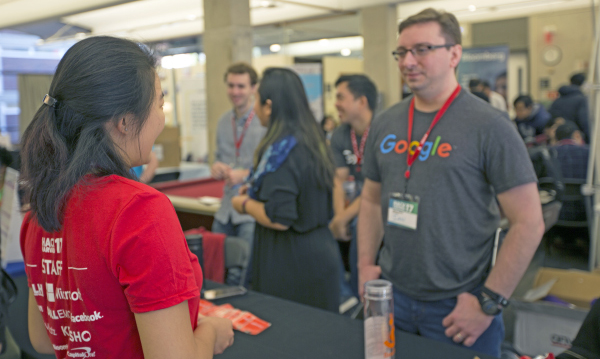
Shirley Lin, A.B. ’19, a neurobiology concentrator talks with a representative from Google about how her skills in science can be applied in many tech fields. (Photo by Alana Davitt/SEAS Communications.)
In those 36 hours, HackHarvard students were completely immersed in their environment, living and working together through the weekend in one building, with one passion, and one purpose. But their backgrounds and projects were incredibly diverse. A student from the University of Florida explained that he grew up watching Introduction to Computer Science (CS 50) lectures by David Malan, Gordon McKay Professor of the Practice of Computer Science at the John A. Paulson School of Engineering and Applied Sciences (SEAS). Having the chance to hone his CS skills at Harvard for the weekend was a dream come true, he said. Another team was just as star-struck by the altruism of the coders and new friends they met at the event.
“Everyone is genuinely excited to learn and work,” explained Jake Seaton, A.B. ’19, a computer science concentrator. On the first night, he announced his project, which was sponsored by a local animal shelter and involved coding a database to track and find homeless animals. The idea was to produce a space where communities can interact to help these lost pets, and also gather qualitative data on where these animals are often found. Within an hour of his announcement, Seaton had gathered a team of six interested hackers.
Many other projects focused on social media interaction. One Harvard team was studying the field of sentiment analysis from media hubs like Twitter. They hoped to plot the sentiment about publicly traded companies in order to provide hints on ideal times to trade or invest in stock.
As the clock struck the 36-hour mark, dozens of teams had made impressive progress on their projects. The hackers headed home with new collaborators and new confidence in their technical skills and in their ability to use those skills to make a difference.
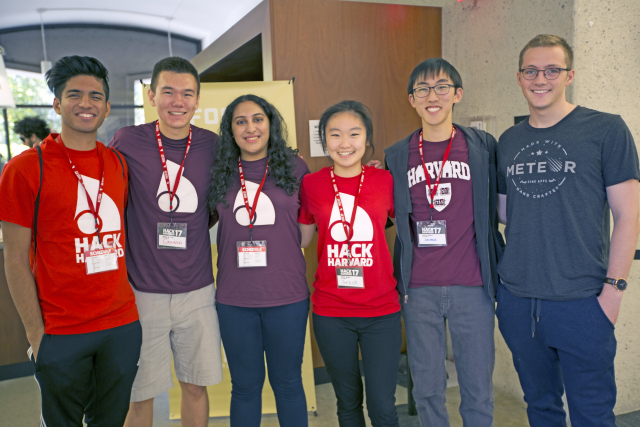
This group of HackHarvard organizers is pleased with the success of the event. From left: Mohib Jafri, A.B. ’21, a computer science concentrator, Camerion Akker, A.B. ’18, an electrical engineering concentrator, Alisha Ukani, A.B. ’20, a computer science concentrator, Grace Zhang, A.B. ’20, a computer science and statistics concentrator, Jonathan Huang, A.B. ’21, an applied math and computer science concentrator, and Jake Seaton, A.B. ’19, a computer science concentrator. (Photo by Alana Davitt/SEAS Communications.)
Topics: Computer Science, Events
Cutting-edge science delivered direct to your inbox.
Join the Harvard SEAS mailing list.
Press Contact
Adam Zewe | 617-496-5878 | azewe@seas.harvard.edu
